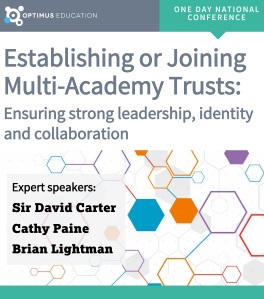Lucinda Reid, editor of Academy Today, looks at the growing trend of sixth-form colleges converting to academies and what should be considered before the application process.

In February 2016, the Department for Education (DfE) released advice which would help sixth-form colleges become a 16-to-19 academy.
Months later this process is taking shape, as reports show that the first merger between a sixth-form college and an academy trust is on the cusp of becoming a reality.
Ninestiles Academy Trust has submitted an application to join with the Solihull Sixth Form College, which would mean that the college becomes an academy.
This merger will be the first sixth-form college to move into an existing trust, and if approved, with be interesting to observe.
Although this is the first of its kind, it will probably not be the last, as there is a growing trend of sixth-form colleges keen to have academy status.
This is encouraging for the DfE as they state in their document, Becoming a 16 to 19 academy: advice for sixth-form colleges, that ‘the Government wants to preserve and build on the strengths which the diversity of providers can bring to provision in their area, in particular by enabling all providers to work in partnerships which build on their particular strengths whilst also realising the educational and financial benefits of sharing resources, expertise and administration.’
This document also states that the Government wants to see a natural partnership between the academy and the college and encourages applications from those who can see the value in this form of partnership.
However, they envisage a variety of different scenarios within these partnerships, for example there could be an, ‘educationally strong sixth-form college with strong finances becoming a sponsor and establishing a new MAT’ or ‘an educationally weak sixth-form college joining a strong MAT which has the capacity to drive improvement in the 16-19 education sector’.
Although there is some flexibility with the partnerships it is essential that applications demonstrate the added value of a sixth-form college becoming an academy and how it will lead to a strong partnership and collaboration.
If a sixth-form college is considering becoming a 16-to-19 academy, they need to consider the following questions.
Before the application process begins, it is essential that the sixth-form college suits the guidelines that the DfE has devised.
For example, 80% of their pupils must be 16 to 19-year-olds and they must be, ‘principally concerned with providing full-time or part-time education’.
It is important that the college meets these requirements as they will be judged on the age range of students and their academic, technical and professional offering.
Understandably, applications will not be successful if the college cannot illustrate that the new academy will be beneficial. Therefore, assurance is essential and the college should, ‘complete due diligence on the financial and legal aspects of the conversion’.
This could be the financial assets which will transfer to the new academy, or any issues that the college think may arise if they were to become a 16-to-19 academy.
Once your sixth-form college has looked at their finances you might want to consider applying for support from the restructuring facility. This will help to cover some or all of the costs that other FE providers have access to.
You can apply for this support alongside your main application and the Government asks that the college supplies sufficient evidence that these costs are justified.
If you are thinking about becoming a 16-to-19 academy it is very important that the decision is supported by everyone involved. This includes pupils, parents, staff members and stakeholders and it is essential that you have open and honest discussions with the multi-academy trust or partner school.
Before applying, consult with each group and make sure their opinions and feedback are deliberated.
For a college to become an academy it is important that everyone works together.
Positively, the application process set out by the DfE is open to many different scenarios.
For example, colleges can join MATs that are far away, as the application process does not set boundaries geographically. This means that colleges can think about the bigger picture, as they may see a strong partnership many miles away. The application just states that, like all applications, the college must prove that the partnership will be a positive collaboration.
Once the above points have been considered, a college can then begin the process of applying to become a 16-to-19 academy.
From reading the DfE advice on this subject, it is promising to see that they want to encourage colleges to make the transition into an academy.
With this support, it comes as no surprise that one of the main trends in the academy sector is sixth-form colleges forming exciting new partnerships.
For more information about Academy Today, visit academytoday.co.uk.
 Establishing or joining MATs
Establishing or joining MATsFollowing its success in London, we’re bringing the Establishing or Joining Multi-Academy Trusts event to Leeds.
It's the only event that will provide legal and practical information on the process of joining or forming a MAT and factual, unbiased guidance on the different models available.
Reserve your place now!